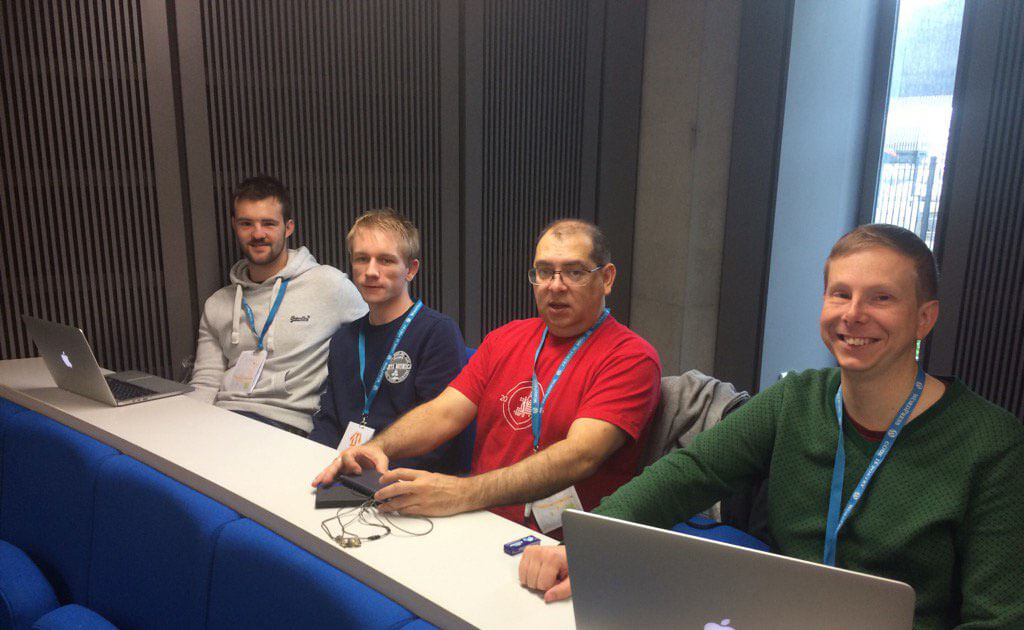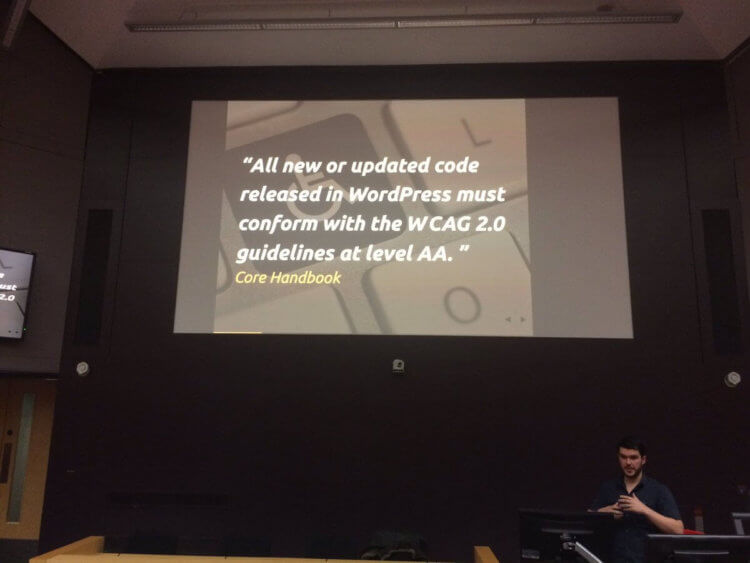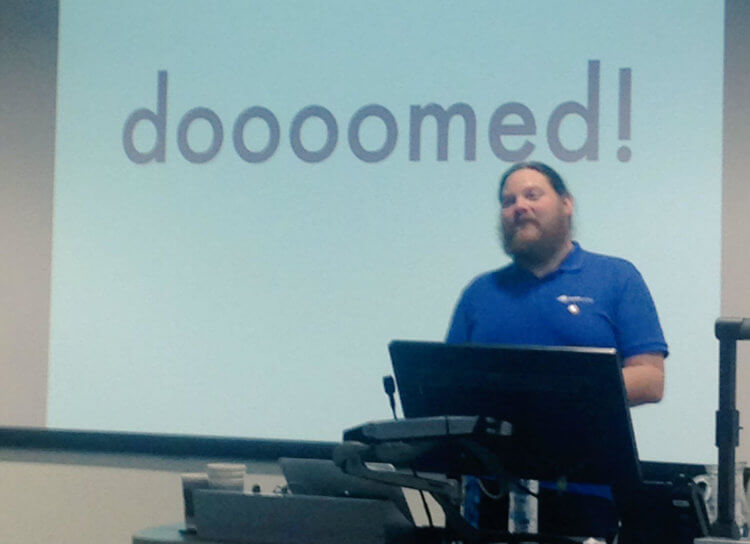Indigo Tree at Wordcamp Manchester

The team recently attended WordCamp Manchester 2016, a great event attended by about 200 other developers. It was great to meet and network with other professionals in the field, and we particularly benefited from some new ideas and fresh perspectives that we heard.
Here’s a couple of our highlights from the event.
Wordpress Coding Standards
After some much needed coffee on a chilly morning, speaker Dave Green introduced us to the Wordpress Coding Standards.
These standards, available from Wordpress and called “Wordpress The Right Way” are designed to help us meet some baseline standards for development. Although these are currently aimed at Core contributors, there is some talk about these standards being rolled out for theme development.
The aims of the Standards are:
1) Reduce stress – when there’s a rule set you reduce the stress because you have an existing framework to reference.
2) More readable code. The Standards cover naming conventions, spacing, structure, and indentation.
3) No fingerprints – whatever you ship it looks the same. This means that other developers can more easily and quickly pick up your code.
4) By using a tool during the build process, we can receive warnings about deprecated functions etc. so that code can last longer without refactoring
5) Faster debugging – this comes with readability and means faster scanning, making bugs quicker to find and easier to remove.
6) Avoid pesky bugs (for example, using Yoda conditions) to avoid when a variable is omitted evaluating to truthy, and giving no warning.
7) Better inline documentation – which in turn encourages more consistent and detailed documentation of your code
8) Encourages more secure code – consistent validation, sanitation and escaping of input & output data
9) Better DB queries- for example, part of the Standards are to avoid using direct DB queries with WPDB in favour of the Wordpress API.
10) Make your code easier to maintain – anyone can modify and fix / improve your code
Whilst these are great aims, and some things are valuable to Indigo Tree, we currently follow PSR standards from the PHP Framework Interoperability Group so that our code fits in with the wider PHP developer community.

Above: Dave Green quoting from the Core Handbook on how all new code conforms to WCAG2.0 level AA standard
Object Oriented UX
Developer Crispin Read took the stage later in the day to talk about the science of Object Oriented User Experience (OOUX). He described UX as “planning, measuring, testing rather than the visual aesthetic. Using Data.” — he advocated an approach that was a lot more about the users’ satisfaction than the clients’. He has a process that takes the Developers’ perspective of making something that works, and the designers, which is more concerned with how it looks.
He said that designers and developers often use UX to inform their perspectives on how an element of a website should work, because “If you haven’t got any data, all you’ve got is an opinion.”
He uses a strategy called “object mapping” where the goals are documented and objects are defined from these, then designers can know what they are designing and developers can know why they are developing something.
This is an approach that has intrigued us, and one that we want to examine ways we can use it internally.
The Internet is Broken
Hilariously entertaining Tim Nash from 34SP described the Internet as a “pet project that has taken off massively”. The internet was never really designed to leave laboratories, and has some inherent weaknesses.
We all witnessed this recently when a DDoS attack targeted a DNS server, resulting in a large amount of the internet being unusable for the better part of a day. Tim explained that a DDOS attack was when lots of machines start sending loads of traffic to a single location. It can quickly overload the servers that it’s targeting.
What’s the best way to mitigate a DDOS attack? Turn your website off. It’ll stop the attack, because there’s nothing to hit. At least the down time you’ll experience will be on your own terms.

Above: Security expert Tim Nash says we’re doomed. I’m sure he doesn’t mean it.
In Conclusion
Wordcamp Manchester 2016 was a memorable, instructive and entertaining weekend for all of our team members. It was a great team building excercise and there was something we all took away that helps us become better developers and stay ahead of the curve when it comes to developing for the ever-changing web.
